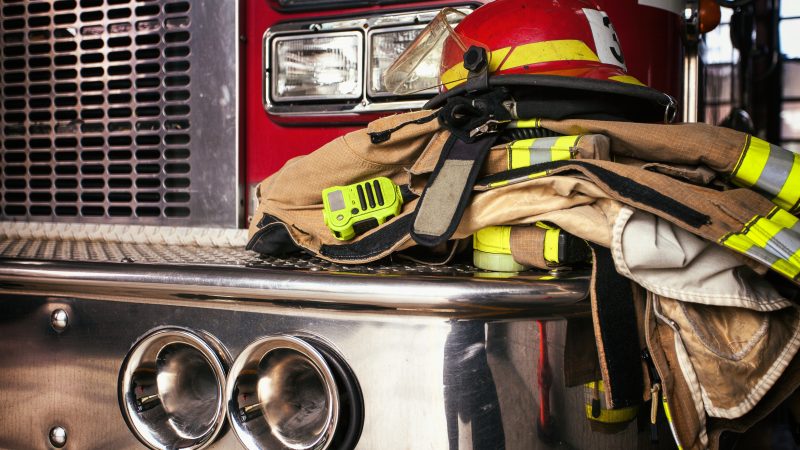
The Fire Brigades Union has warned that the UK is not ready for two national emergencies at the same time, such as mass flooding and the coronavirus crisis, after losing 19% of fire and rescue service staff due to cuts since 2010.
Launching its #FundTheFrontline campaign, Labour-affiliated union FBU has highlighted new figures showing that brigades have had to confront Covid-19 with 11,237 fewer firefighters and control room staff than ten years ago.
The trade union has argued that, unless the government provides urgent investment for additional crews in its one-year spending review, the British public face a “roll of the dice” every time a major incident takes place.
Firefighters agreed early in the pandemic to support the coronavirus response while maintaining core functions throughout. This extra work has included delivering personal protective equipment, food and medicine, and moving dead bodies.
But the FBU is concerned that if the service encounters more than one major threat at the same time – such as if the pandemic had broken out during mass-flooding earlier this year – firefighters may not be able to provide much-needed support.
According to the union, the staffing shortage in the fire and rescue service has forced many to send out fire engines with just three firefighters on board, which is fewer than the minimum five required to safely perform a rescue or tackle a fire.
It has also been pointed out that non-fire incidents have soared by 12% over the last decade, with firefighters responding to 162,251 non-fire incidents last year – more than the total number of fires. This was partly due to surges in flooding.
FBU general secretary Matt Wrack said: “Be it mass flooding and wildfires caused by climate change, huge post-Grenfell building safety challenges, terrorist attacks; or pandemics, firefighters are an all-hazards emergency service on the frontline protecting the UK from the vast majority of major threats.
“But a decade of devastating cuts means that we can only effectively handle one of these crises at a time. The brutal reality is that, if and when mass-flooding or another major emergency hits this winter, it could impact firefighters’ ability to aid the pandemic response, or respond to another major incident.”
Calling for “at least 5,000 new firefighters immediately”, Wrack concluded: “Increasingly, each time one of these major emergencies break out, the public face a roll of the dice, hoping that more than one won’t come at once – and it’s only a matter of time until we lose that gamble.”
The FBU has been outspoken about the climate emergency and a strong supporter within the Labour Party of a ‘Socialist Green New Deal’, which would include a ban on fracking, repealing all anti-union laws and public ownership of key utilities.
The union has today stressed that it is some of the UK’s regions most at risk during the Covid-19 crisis that have also faced the worst cuts to firefighter numbers since 2010, with Greater Manchester losing 629 firefighters – a 32% cut.
West Yorkshire has lost 609 firefighters, a 35% cut, the FBU has highlighted, while Calder Valley has been hit by six major floods in five years and the region has experienced persistent wildfires. South Yorkshire has lost 293 firefighters in a 31% cut.
The FBU has also sought to draw attention to government inaction on unsafe cladding despite the Grenfell fire taking place over three years ago. Greater Manchester has the second-highest concentration of buildings with Grenfell-style flammable cladding in the country.




More from LabourList
‘Security in the 21st century means more than just defence’
‘Better the devil you know’: what Gorton and Denton voters say about by-election
‘Unity or division’: Starmer’s message to voters in Gorton and Denton